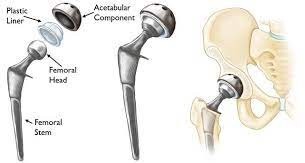The nurse is providing education to a client who is prescribed Lisinopril (ACE inhibitor) for hypertension. The nurse will be sure to include what information about a common side effect?
"You may notice an orange coloring to your urine!
"Be sure to take a stool softener to prevent constipation.
"We will need to check your labs frequently for bleeding risk”
"You may experience a chronic dry cough."
The Correct Answer is D
The nurse should inform the client that a common side effect of Lisinopril, an ACE inhibitor, is a chronic dry cough. ACE inhibitors can cause irritation in the respiratory tract, leading to a persistent cough. It is important for the client to be aware of this side effect and report it to their healthcare provider if it becomes bothersome.
Nursing Test Bank
Naxlex Comprehensive Predictor Exams
Related Questions
Correct Answer is C
Explanation
The patient bending over the sink while brushing teeth requires intervention by the nurse. After hip arthroplasty using the posterior approach, the patient should avoid bending at the hip greater than 90 degrees to prevent dislocation of the prosthesis. The nurse should instruct the patient to bend at the knees instead of the hips while brushing teeth or doing any other activity that requires bending. The other actions mentioned in the options are appropriate for a patient after hip arthroplasty.

Correct Answer is B
Explanation
IBD, which includes conditions such as Crohn's disease and ulcerative colitis, is characterized by chronic inflammation of the gastrointestinal tract. The symptoms can vary depending on the type and severity of the disease, but common symptoms in children with IBD include:
- Children with IBD often experience increased frequency of bowel movements, which may be loose or watery. This is often accompanied by urgency and a sense of incomplete evacuation.
- Chronic inflammation in the gastrointestinal tract can interfere with nutrient absorption, leading to poor appetite, decreased intake, and subsequent weight loss. In severe cases, malnutrition may occur.
- Inflammatory processes in the intestines can lead to increased motility and peristalsis, resulting in hyperactive bowel sounds.
Whether you are a student looking to ace your exams or a practicing nurse seeking to enhance your expertise , our nursing education contents will empower you with the confidence and competence to make a difference in the lives of patients and become a respected leader in the healthcare field.
Visit Naxlex, invest in your future and unlock endless possibilities with our unparalleled nursing education contents today
Report Wrong Answer on the Current Question
Do you disagree with the answer? If yes, what is your expected answer? Explain.
Kindly be descriptive with the issue you are facing.
